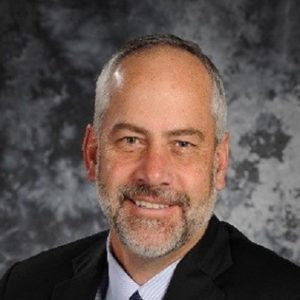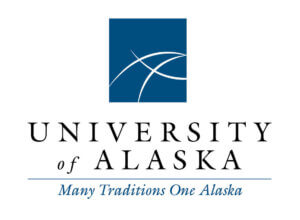The Emerging Energy Market Analysis Initiative is a collaboration between Idaho National Laboratory, University of Michigan, University of Wyoming, Massachusetts Institute of Technology, University of Alaska, University of Utah and Boise State University. The initiative is dedicated to advancing the understanding of energy markets options as the world transitions to new energy futures.
The EMA team is distinguished by their expertise spanning engineering and technology, social science, law, economics, natural resource policy, cultural studies, public and regulatory policy and stakeholder engagement. The team includes recognized experts in regional, national and international energy and stakeholder issues. As such, EMA can identify complex interactions and interplay between technological, social acceptance, economic and systems resilience attributes of future energy systems resulting in an ability to ascribe holistic value of potential energy options in transitioning and emerging markets.
The EMA team is led by a core-group representing each institution. This leadership group engages across their respective institutions, tapping the breadth of talent available and builds the teams necessary to carry out energy options analyses of importance.

Bell brings both private sector and academic experience and insight to EMA. She has launched and advanced several small businesses and has dedicated her time in academia towards improving higher education engagement with communities and industry. She has provided leadership to a host of economic and business development initiatives including community planning, business retention and expansion, cluster or industry sector development, and organizational planning and change management.
University of Alaska brings to EMA deep energy expertise, innovative approaches to stakeholder engagement across a complex environment and dynamic energy markets, engineering and arctic (harsh climatic) research, and cultural research and entrepreneurship. These capabilities span each of the three major University campuses (in Anchorage, Fairbanks and Juneau) and include centers affiliated with the BEI including the Center for Economic Development, Alaska Center for Energy and Power, and the Institute for Social and Economic Research. The BEI works are interdisciplinary and serve in collaboration with all campuses and colleges across the University of Alaska system.

Allen brings to EMA deep expertise in nuclear science and technology in addition to experience with nuclear energy policy and education strategies.
The University of Michigan provides EMA access to world-leading expertise in nuclear technology, systems integration and economics of energy systems, resiliency of engineered systems, and the social science of deployment. This expertise lies in the Department of Nuclear Engineering and Radiological Sciences and the associated Fastest Path to Zero Initiative, the School for Environment and Sustainability, Department of Industrial and Operations Engineering, and the Ford School of Public Policy.

Righetti’s professional background includes work in executive leadership at a privately held upstream oil and gas company and management of the University of Wyoming’s academic program in Professional Land Management. She brings expertise in energy land management, split estates, climate policy, and public land regulation.
The University of Wyoming provides EMA with access to leading researchers and expertise regarding the cultural and social dimensions of energy project development, state and federal regulation, and environmental and resource economics. The University of Wyoming also has deep expertise in stakeholder collaboration and engagement. Expertise at the University of Wyoming is housed in the Haub School of Environment and Natural Resources and the associated Ruckelshaus Institute for Collaboration, the College of Law, the College of Business, and the School of Energy Resources and its associated Center for Energy Policy and Regulatory Analysis.

Parsons brings decades of experience in capital investments and industrial and government policy in energy and environmental markets.
The Massachusetts Institute of Technology provides EMA access to nuclear expertise, housed in the department of Nuclear Science and Engineering, and economic and financial expertise, housed in the Center for Energy and Environmental Policy research sponsored by the Economics Department and the Sloan School of Management. MIT’s university-wide Energy Initiative provides a comprehensive perspective on the breadth of technological change shaping all corners of the energy industry.

Aumeier has contributed to national laboratory missions for over three decades. His expertise lies in energy systems integration and architectures, advanced signal processing and embedded intelligence, nuclear reactor physics, and energy management and policy. He holds a doctorate from the University of Michigan and an MBA from University of Chicago and has held various leadership positions including university programs, national and homeland security, energy and environment, and nuclear energy research organizations.
Idaho National Laboratory brings to EMA the capabilities of the U.S. national nuclear energy laboratory, with deep expertise in design, analysis, and testing of nuclear systems and technologies. The laboratory also brings sophisticated capabilities for analysis of systems resilience, security, and performance in normal and off-normal conditions, systems integration design, and advanced controls and digital security. The laboratory manages a variety of programs on behalf of the Department of Energy, resulting in a comprehensive view of nuclear energy technology and policy.

Araújo specializes in socio-technical systems and decision-making associated with energy transitions. This includes decarbonization, resilience and industrial restructuring. She has evaluated international regulation of cyber-nuclear risk and post-Fukushima nuclear safety, means to evaluate resilience, and the role of skills repurposing in shifts toward clean energy. Araújo is a visiting researcher at Idaho National Laboratory. She consults for industry and inter-governmental organizations. Araújo completed her doctoral studies at MIT and post-doctoral research at Harvard.
Boise State University provides EMA with expert capabilities in social, technical, and environmental aspects of energy system change. The Energy Policy Institute and School of Public Service bridge economic and engineering capabilities with deep strengths in applied analysis of regulatory gaps, federal-state-local permitting and policy, market design, regional jobs, environmental protection, and community acceptance. The College of Engineering, School of Arts and Sciences, College of Business and Economics, College of Health, and College of Innovation and Design provide additional expert capabilities in advanced manufacturing, cyber security and data analytics, industrial efficiency, economics, pollution and land use.

Rice brings extensive administrative experience to both EMA and her leadership role with the Energy Futures Research Engine at the University of Utah. With a background in public utilities, she has served in pivotal roles such as the Deputy Director of the Salt Lake City Department of Public Utilities and the Water Quality & Treatment Administrator for the same department. Her expertise in the energy-water nexus and environmental justice will directly benefit EMA analysis and initiatives and has been instrumental in addressing the pressing energy challenges of our time.
Dr. Rice leads the University of Utah’s Energy Futures Research Engine, which is dedicated to identifying and cultivating reliable and cost-efficient energy sources. With a focus on facilitating technologies that will shape the future of energy, the initiative aims to address the growing energy needs of our society.
She holds a Ph.D. in Political Science from the University of Utah, with a focus on the energy-water nexus and environmental justice. She also possesses a Master of Public Administration with a concentration on renewable energy implementation. Additionally, she completed the Environmental Dispute Resolution Program at the S.J. Quinney College of Law and earned her undergraduate degree in Biology from Portland State University.
For questions or comments on INL’s EMA initiative collaboration, please contact us at [email protected].








We meet the clean energy transition head-on. We seek to change the analysis from cost-only to value-based comparisons (e.g., value-adjusted levelized cost of electricity).
Our work will provide policy makers, communities and technology developers a clear view of choices. The choices made now will have a long, costly tail.
We seek to establish communications and a narrative appropriate for creating a clean energy paradigm shift by applying a new generation of technology. We then plan to match that technology to individual community goals.
The broad-capability partnership with INL is essential, providing depth and breadth. It builds on decades-long regional engagement, new DOE place-based initiatives and nuclear and non-nuclear technology development.